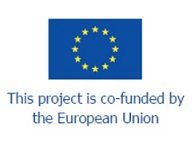Project summary written by Prof. Kris van de Poel, University of Antwerp
Nursing is a mobile profession. Large-scale, targeted recruitment by developed countries to address domestic shortages (Report open consultation Green Paper European Workforce for Health 2009) intensifies the need for focused communication training for nurses and other medical care staff. In a globalized world intercultural challenges have become part of professional life. Effective communication is considered essential to professional nursing practice (AACN 1998) and the teaching/learning of good communication is central to nursing accreditation standards (Commission on Collegiate Nursing Education 2003). Thus, communication AND language training is indispensable for indigenous as well as foreign medical professionals.
Based on research and experience (MoM-project 2006-2011), Nurses on the Move (NoM)1. develops nurses’ intercultural communication competences for patient-centered care (e.g. handing-out drugs, wound-care, assistance with daily activities), diagnostic procedures (e.g. measuring blood pressure, taking body temperature), distribution of food, change of shift: discussing patients and cases, writing up documentation, interacting with colleagues; 2. delivers a system for the recognition of linguistic competences autonomously acquired in clinical settings.
Participants will interact with
(1) ear training and performance of contextualised sounds
(3) medical scenarios with
(4) a written/audio wordlist and translations
(5) a medical communication guide.
The materials in DA, DE, EN, FIN, IT, NL, SE (support in AR, ES, FR, PO, RO, RU, SER, TU) are presented in dedicated learning spaces and accessible online and through mobile technology. E-learning/blended learning is facilitated through forums and skype.
The impact concerns medical professionals with appropriate accredited skills to successfully communicate with multidisciplinary team members, patients and their families, which will improve the quality of their mobility and work.
Through multilingual innovative teaching materials and approaches, Nurses on the Move (NoM) aims to support learners in secondary, tertiary and adult education contexts to (further) train them in learning, acquiring and using knowledge, skills and qualifications to facilitate their personal development, employability and high quality participation in the European labour market. NoM support the development of innovative ICT-based content, services, pedagogies and practice for lifelong learning.
 Language discordant medical professionals are on the increase in the EU. Misunderstandings between nurses, doctors and patients with different cultural/linguistic backgrounds relate to verbal and non-verbal communication styles and have an adversary effect on perceived professional status; they lead to rejection, stress, job dissatisfaction, burnout, drop out (Van Bogaert 2009), and provoke drop in patient care and treatment failure.
Language discordant medical professionals are on the increase in the EU. Misunderstandings between nurses, doctors and patients with different cultural/linguistic backgrounds relate to verbal and non-verbal communication styles and have an adversary effect on perceived professional status; they lead to rejection, stress, job dissatisfaction, burnout, drop out (Van Bogaert 2009), and provoke drop in patient care and treatment failure.
NoM addresses learners and professionals in secondary, higher and adult education. It contributes to raising awareness of the advantage of language learning for professional purposes and addresses the multilingual character of the European labour market. It offers blended and autonomous access to innovative language learning resources and disseminates instruments for language testing (making use of CEFR).
NoM facilitates the development of innovative language learning practices in the field of vocational education and training. It aims at increasing awareness for the need of multilingualism in the workplace, thus supporting linguistics diversity. In its choice of target and interface languages NoM supports and aims to sustain and increase the vitality of less widely used European languages.
The NoM-project aims at reinforcing and facilitating language competences relevant to the medical workplace in order to improve employability and enhance European competitiveness.
It further wants to improve the transparency and recognition of qualifications and competences, including those acquired through non-formal and informal learning.
Not only does NoM in the language materials but especially in the problem-solving approach of the communication manual promote awareness of cultural and linguistic diversity in a professional context, but also in its hands-on approach does it promote the need to combat racism, prejudice and xenophobia.
Since NoM is designed for autonomous, blended as well as contact teaching and learning the materials are learner-centred. Learners with special needs may find it extremely helpful to work in their own space, at their own pace, making use of all the help functions the program provides, e.g. text, audio, video, fora, … In this way their integration in training and in the workplace will be facilitated.
NoM aims to facilitate lifelong learning through a learner-centred and flexible approach. It will become a reality through the implementation of lifelong learning strategies and by developing qualifications frameworks and measures to enable more flexible learning pathways (Commission on Collegiate Nursing Education 2003).
Through collaboration with South African experts in intercultural communication and language assessment we hope to gain insights in and provide increased perceptiveness for a multicultural professional community. Moreover, we will be able to jointly build the basis for professional accreditation of acquired communication awareness and skills.
For more information about Nursing on the Move, Medics on the Move and Communication for Professionals (CfP), visit us on Facebook, take a look at the videos on the CfP YouTube Channel or read the article Erasmus+ project Nursing on the Move.
You may also benefit from the communication tips provided by Comforpro and published in the monthly newsletter GI-Mail – for an overview of the tips, please click here.



